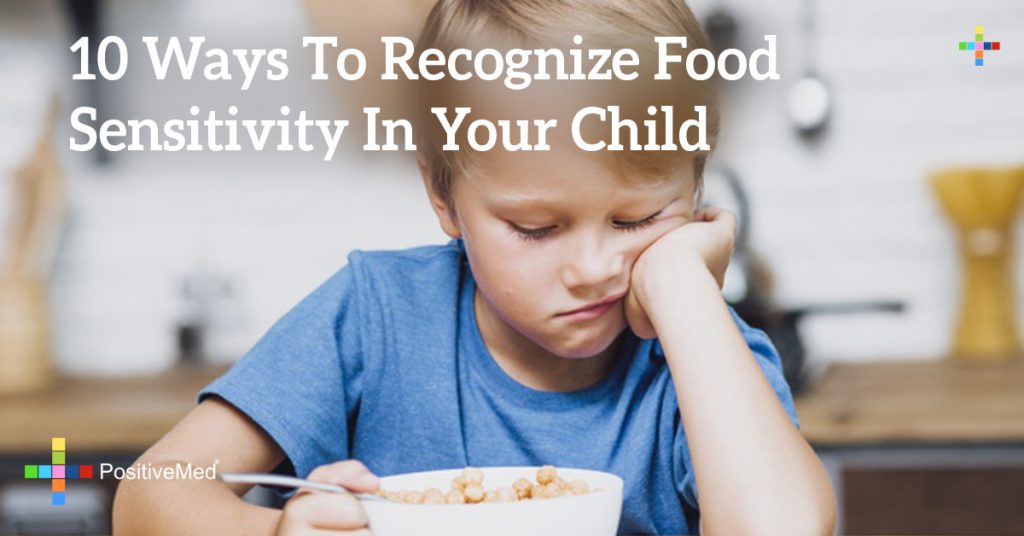
10 Ways To Recognize Food Sensitivity In Your Child
Food sensitivity is increasing every year. During the past 20 years, there has been a 50% increase in food sensitivity in children. These facts are particularly alarming because health professionals are not able to pinpoint the exact causes of food sensitivities in children.

Some health professionals attribute food sensitivities to genetics. While other health professionals believe food sensitivities are caused by the way a child’s body processes the ingredients in a particular food.
If your child is suffering from food sensitivities, it is important for you to research information about food sensitivities. You must also know the 10 warning signs of food sensitivities.
What are Food Sensitivities?
Food sensitivities are often confused with food allergies. When a child has food allergies, there is an immediate adverse reaction to the offending food. With food sensitivities, it can take up to 5 days for symptoms to manifest in children.
Children are prone to food sensitivities because their bodies are developing. As a result, their bodies do not have the natural enzymes to digest certain foods. Common foods that promote food sensitivities are:
- Dairy
- Eggs
- Wheat
- Gluten
- Fermented foods
- Peanuts
Although these foods are the most common items that contribute to food sensitivities, your child can develop a sensitivity to any food. You should pay close attention to the foods that your child consumes and their effects.
10 Ways to Recognize Food Sensitivity in Your Child
Since food sensitivities cause a delayed responses, you may not be aware that a particular food is adversely affecting your child’s health. Here are 10 ways to recognize food sensitivities in your child.
RELATED ARTICLE: 11 Signs of Histamine Intolerance And Foods To Avoid
1. Your child has recurring headaches after a particular food or food group is consumed.
2. Your child is gaining or losing weight for no particular reason.
3. Your child is wetting the bed at night. If your child is capable of using the toilet, this is an abnormal occurrence for your child.
4. Your child is experiencing bouts of diarrhea and cramping.
5. Your child has dark under eye circles. This is especially true if your child has developed an intolerance for wheat and gluten products.
6. Your child has difficulty sitting still and concentrating at home or in school.
7. Your child may be moody, sensitive or emotional with no apparent explanation.
8. Your child may develop frequent colds or a runny nose. Pay close attention to this symptom if your child has a runny nose without cold or flu-like symptoms.
9. Your child may get dizzy and experience loss of balance.
10. Your child may be frequently tired. As a result, your child may not think clearly. Health professionals often refer to this symptom as ‘brain fog’.
Effects of Food Sensitivities on Health
Food sensitivities are serious business. If left untreated, food sensitivities can have an adverse effect on your child’s health in the future. Untreated food sensitivities can lead to conditions such as food allergies, autoimmune diseases, esophagitis and Chron’s disease. As a parent, it is important for you to get your child’s food sensitivities under control.
Natural Ways to Treat Food Sensitivities
Your child can thrive in spite of having sensitivities to certain foods. With a great deal of planning and effort, you can treat your child’s food sensitivities naturally.
The first thing you should do is put your child on an elimination diet. Make a list of foods that your child frequently eats. For 3 weeks, remove the foods from your child’s diet that you believe are causing the food sensitivities. Reintroduce the food to your child’s diet. Monitor any symptoms your child is experiencing during this time. Repeat this process until you determine the cause of the food sensitivities.
There are other ways to eliminate food sensitivities in your child. Eat organic meats, fruits and vegetables. Eliminate processed foods from your child’s diet. This includes all canned, frozen and pre-packaged foods.
Incorporate probiotics into your child’s diet. Probiotics promote friendly gut bacteria. Your child should consume foods that contain gelatin. Natural gelatin has the ability to heal a damaged digestive system. Your child should get adequate amounts of rest each night. Rest helps your child’s body to heal.
Food sensitivities do not have to reduce the quality of your child’s life. By using the proper tools, you can learn to recognize and eliminate food sensitivities in your child.





